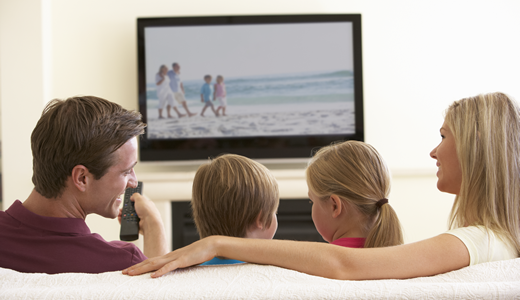What would you do with an extra hundred days?
I can come up with all kinds of creative ideas. In 100 days, you could probably sail around the world. Maybe hike a big chunk of the Appalachian Trail. Write a novel? Finally clean out your garage? (I’m only half kidding on that one.) Go fishing … for the entire summer.
Or maybe just try to figure out what to watch on TV.
What?
I’m serious. A new survey by OnePoll in England estimates that the average Brit spends a whopping 112 days deciding what TV and movies to watch over the course of his or her lifetime. That figure breaks down to 48 minutes weekly (about 24 minutes each for movies and TV shows). Maybe it’s no surprise that after channel surfing through myriad channels, 49% of those surveyed said they sometimes take so long to figure out what to watch that they just get frustrated and give up.
Why do we take so much time to choose what to watch? OnePoll spokesman Jamie Scwartz says, “With the busy lives we lead, we want to make sure we are watching the best that TV has to offer but can often feel overwhelmed by the amount of choice.” In other words, we’re fearful that we might choose one show or movie only to hear that something else is actually better or buzzier. It’s a screen-focused version of FOMO: fear of missing out.
When More Is Less
Turns out sometimes more isn’t actually more. Instead, there’s a tipping point at which too much choice becomes at the very least momentarily paralyzing and at worse something psychologically damaging. There’s a cost in time, as this survey notes, but there may also be a cost to our mental health. In his 2004 book The Paradox of Choice: Why Less Is More, psychologist Barry Schwartz notes that too much choice can create stress, anxiety and even depression:
“Autonomy and freedom of choice are critical to our well being, and choice is critical to freedom and autonomy. Nonetheless, though modern Americans have more choice than any group of people ever has before, and thus, presumably, more freedom and autonomy, we don’t seem to be benefiting from it psychologically.”
When we turn on the TV, look for a movie to watch or even just pick up our smartphones, the vast array of choices of how to interact with screens is, functionally speaking, infinite. Netflix alone offers about 3,600 movies and 1,800 TV shows, according to the content-curating app justwatch.com. That app promises to curate all of your streaming services into a single feed of suggestions once you give it some parameters.
Infinite Choice, Finite Lives
Seemingly infinite choice might seem like a good thing. But here’s the rub: We’re finite beings with finite amounts of time and energy. We can’t watch everything or engage with all the content out there. Facebook stresses me out for exactly that reason: I don’t have time or energy to keep up with everything that’s going on in the lives of my closest circle of friends—let alone the hundreds of others that I have some kind of social media connection with.
This survey shows that there’s a big cost paid when you add up the minutes we spend each day trying to decide whether to watch this or that. It may not seem like much over the course of a week—just 48 minutes out of 168 hours. But over a lifetime? That’s a lot of time invested into making what are ultimately insignificant decisions. How much more is that true when we add in the amount of time we engage with screens after we make those choices? What I like about this article is the way it measures a real cost paid over a long period of time. It reminds me that each day I’m making choices about how to spend—or how to invest—the limited time I’ve been given here. And I think it prompts me to ponder, Is that a cost that I really want to keep paying?







Recent Comments